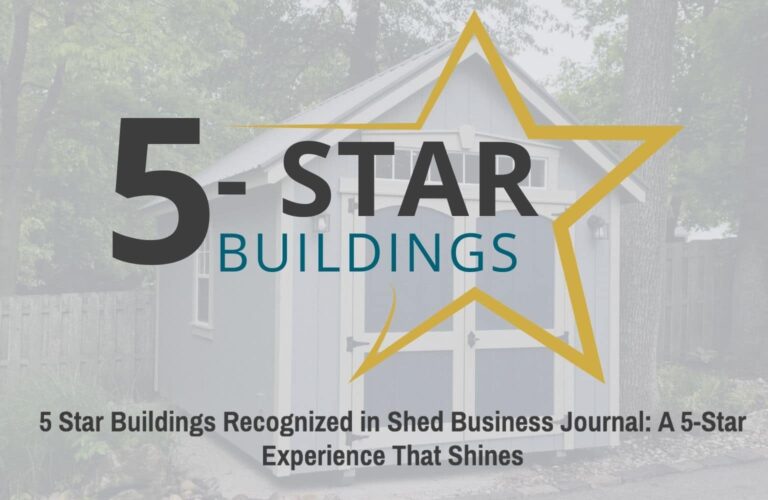Off Grid Cabins Made Easy
Harrison Lutz - November 13, 2025
Table of Contents
Off-Grid Cabin Living
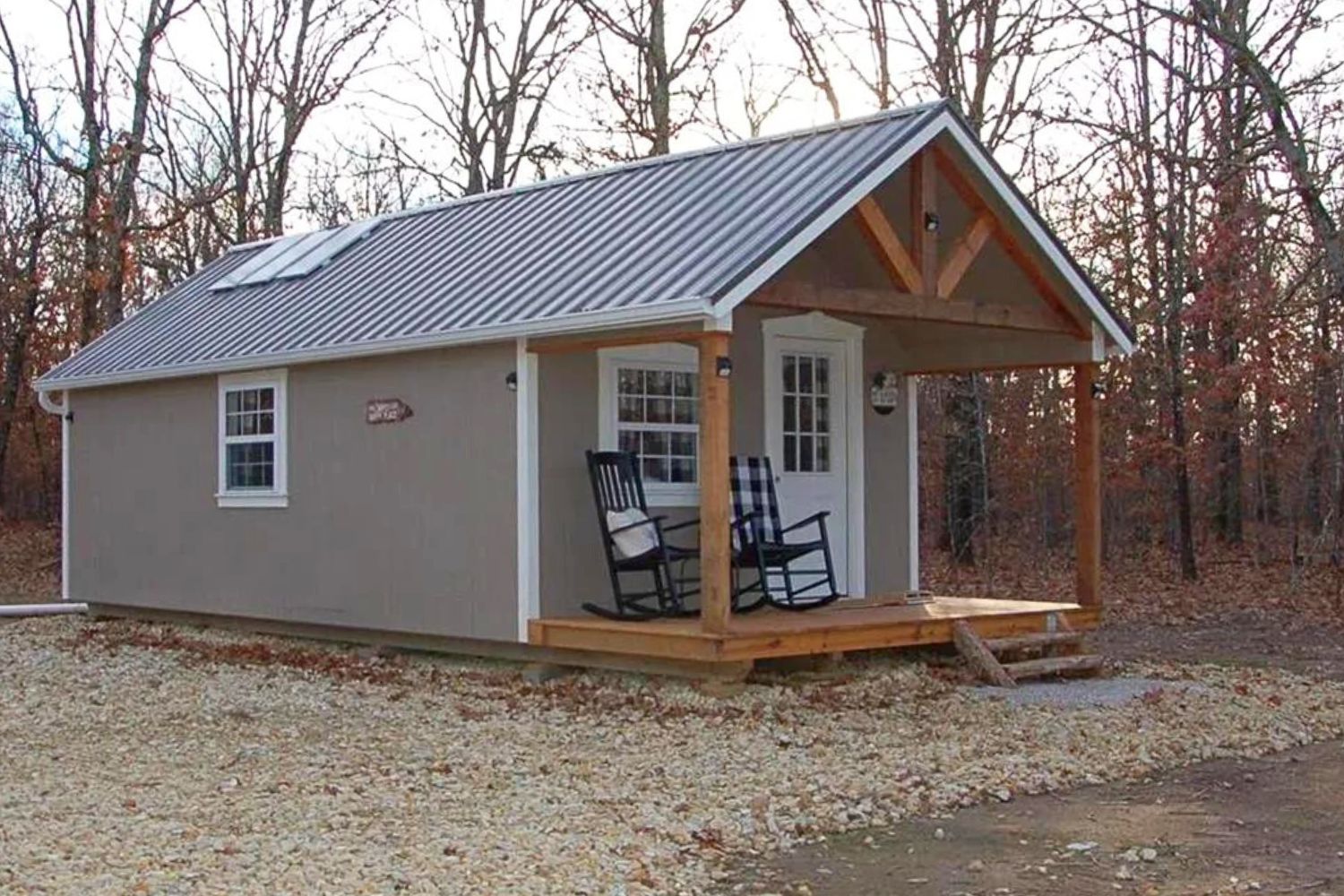

An off-grid cabin may be the avenue that you take to slow down and enjoy life. If you are able to get away for just a few weeks out of the year, making a cabin with a campsite feel might be ideal, whether you want to take the family or be by yourself. However, if you enjoy outdoor activities such as hunting or fishing, a secluded living quarter might just be the bee’s knees. Those that work remotely or are writers might find this to be an excellent option as a way to do what they love while being where they love. Let’s take a deep dive into what it would take to create an off-grid cabin setup.
How Much Does An Off-Grid Cabin Cost?
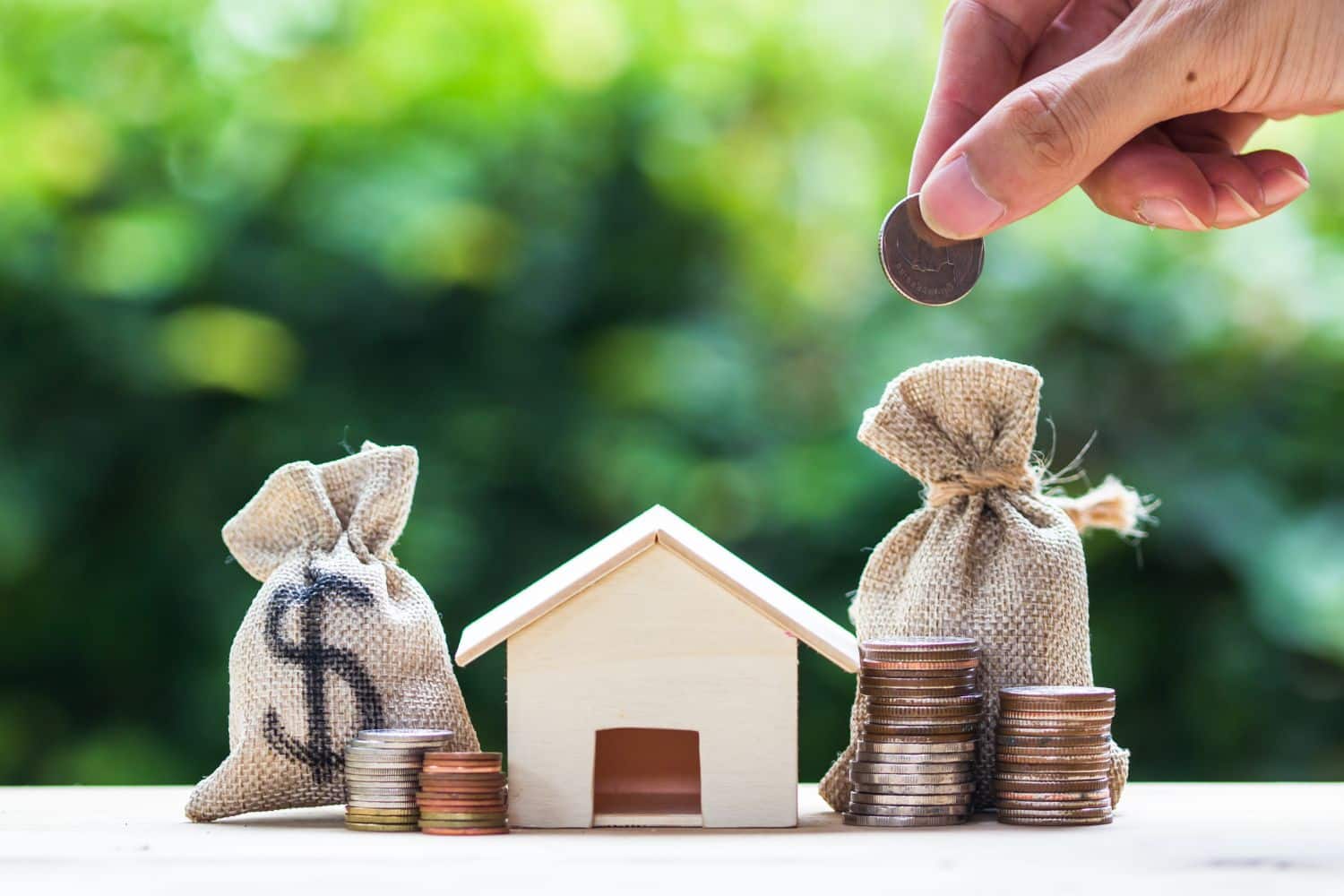

The price of an off-grid cabin can vary a lot. Typically, at 5-Star Buildings, our 12×16 portable cabins range around $7,000 to $8,000, while a 16×48 structure is closer to $15,000 to $20,000. There are many factors to consider when buying a structure, including design, size, and style, each affecting what you will pay for the structure itself.
Our recent customer, Kimberly, bought one of our off-grid cabins and later sold it. Her pictures will be featured in this blog so that you can enjoy the rustic and charming feel of this getaway. If you think having an off-grid cabin like Kimberly sounds appealing to you, check out our selection of portable cabins to find the one that will work for you. If you like the idea of making your design, you can do that with our Custom 3D Shed Builder, allowing you to craft a cabin that is unique to your desired setup.
What Factors May Make My Off-Grid Cabin More Expensive?
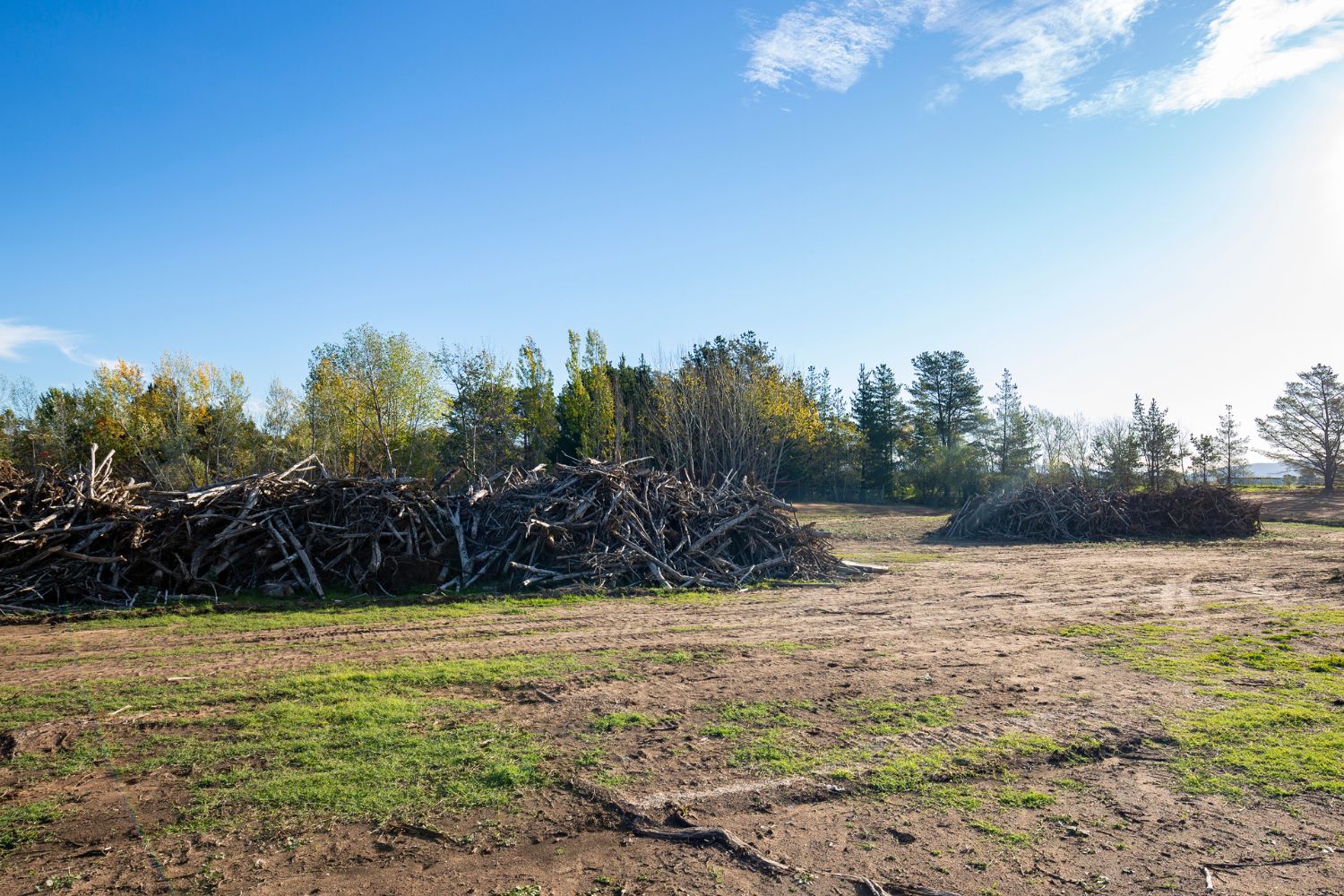

Location is also a major factor determining the cost of your off-grid cabin. Average prices for recreational and timberland in Missouri range from $2,500 to $5,000 per acre. This price drastically differs based on which county the land is located in. A good place to start exploring the land for sale near your preferred area is to use an online property search, no matter what size you desire your parcel of land to be.
We recommend that, before you buy, you do some research on the state building codes as well as the more relevant local codes. If you have questions about permits, check out our permitting guide for Missouri. Some counties in Missouri have very little regulation, while others can be more strict.
The size of the building and the accessories that you add to it will affect how expensive it will be. If you add features such as a prefab deck to your cabin, then that will add to the price.
How To Lay Out My Off-Grid Cabin?
The layout of your off-grid cabin can be the difference between crowded frustration and defined efficiency. Typically, off-grid cabin setups have limited indoor space, so here are four tips to consider when designing your cabin interior.
Vertical Storage
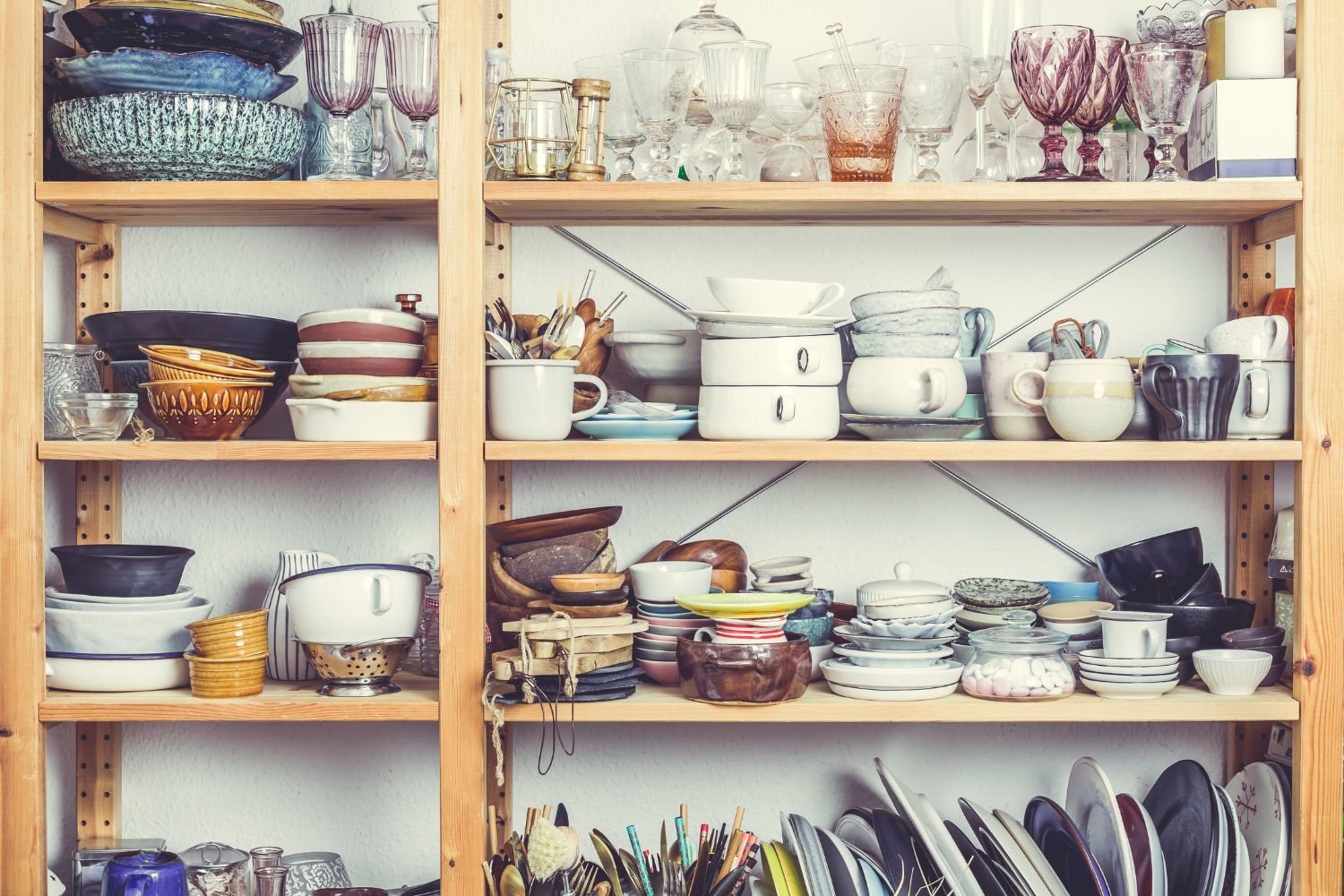

Just because you have limited floor space does not mean everything should be on the floor. Use the wall space in various ways, utilize hooks and pegs, as well as open shelving. Create loft areas that can be used as extra storage or even as an extra sleeping space. If you like to use containers, make sure that they are stackable.
Multifunctional Products
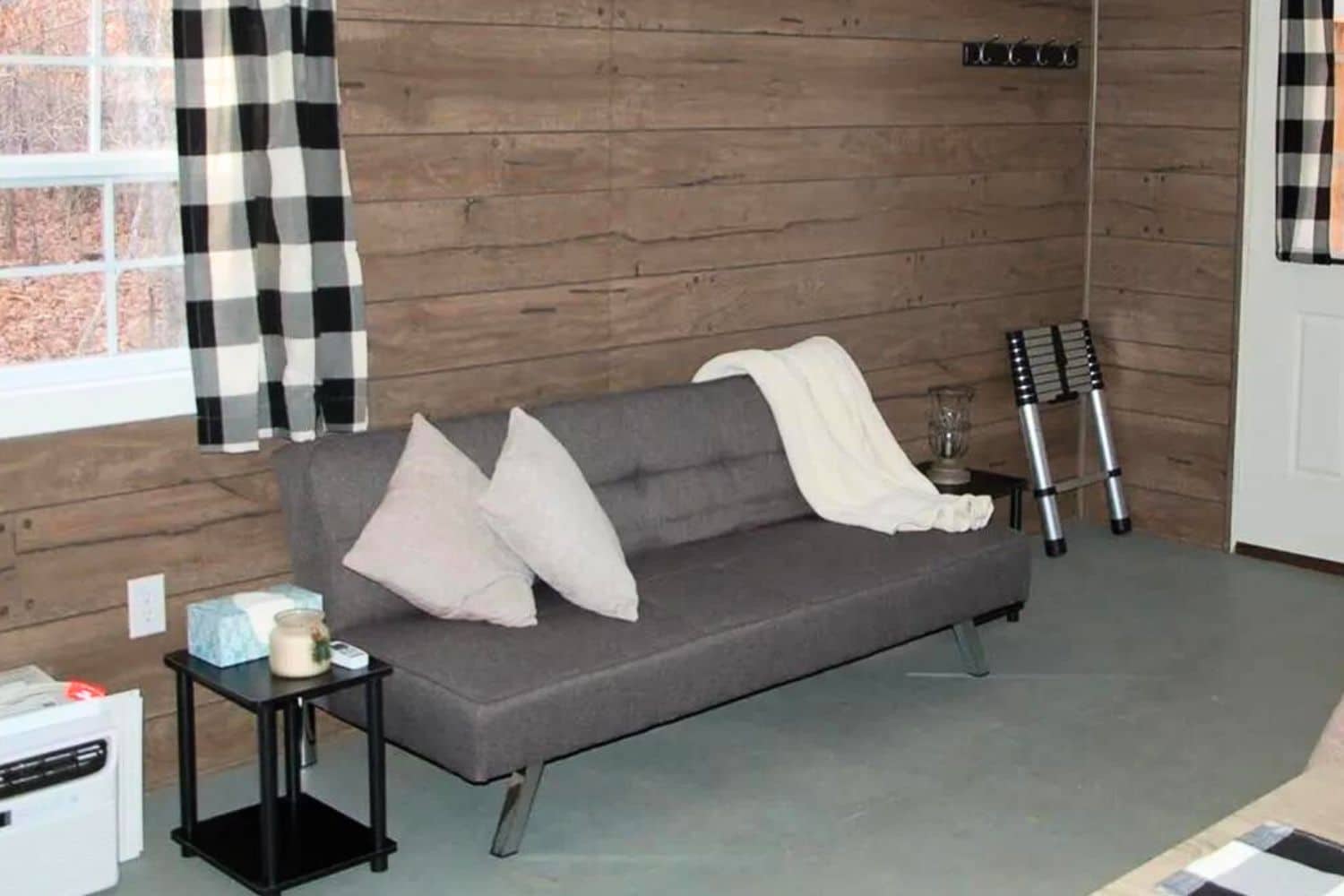

The more things that can do multiple jobs, the fewer objects you need. Using a sofa bed can give you the ability to add sleeping quarters for one extra person while hanging on to your sitting area. Get a table that can be used as a kitchen island or office desk.
Make Zones
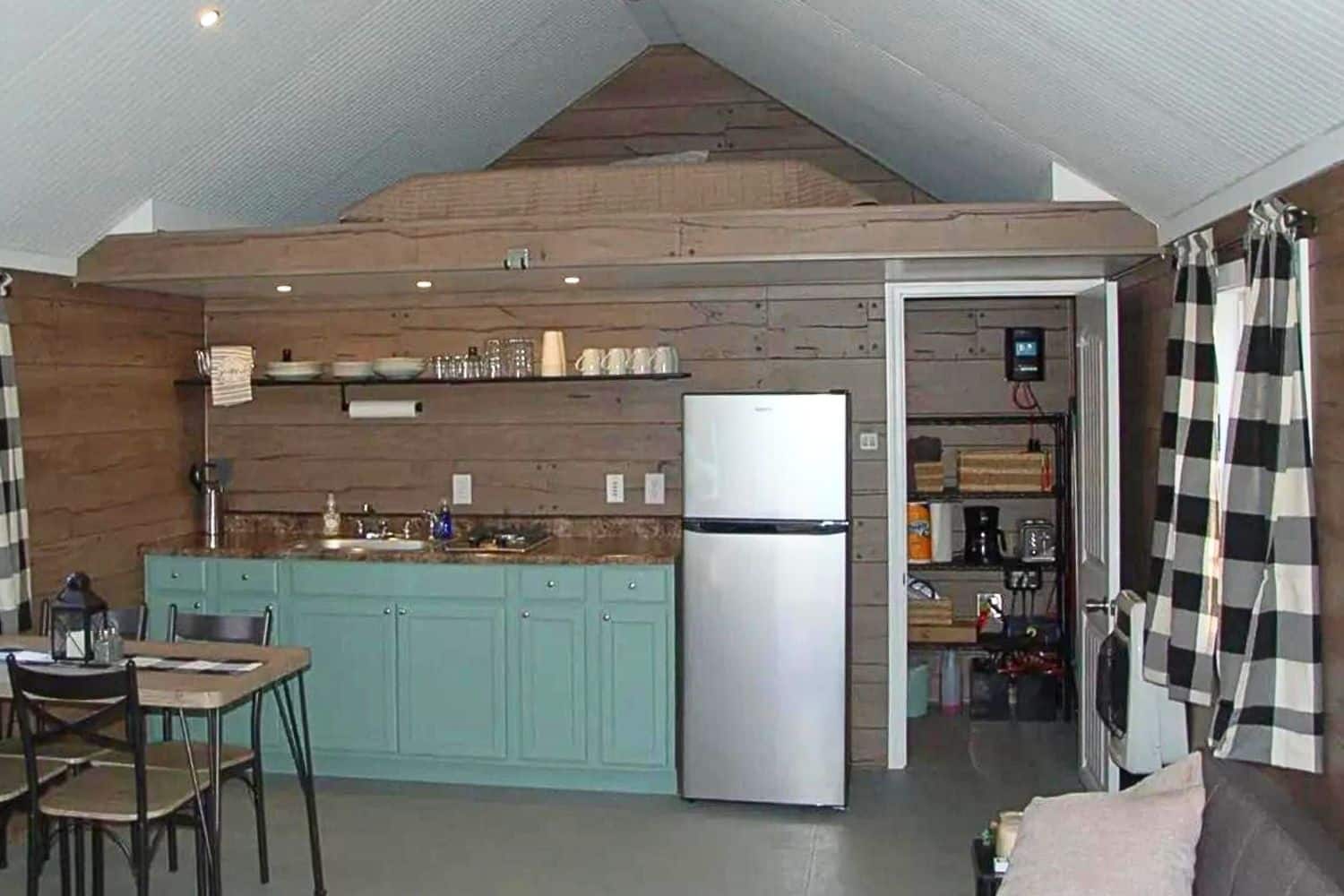

Any plumbing that is done should be as close as possible. Having the kitchen, bathroom, and/or laundry beside each other is more efficient. Keep your open areas together as well to make your versatile space as large as possible. Check out the format above and below, showing how Kimberly arranged her cabin.
Flexible Space
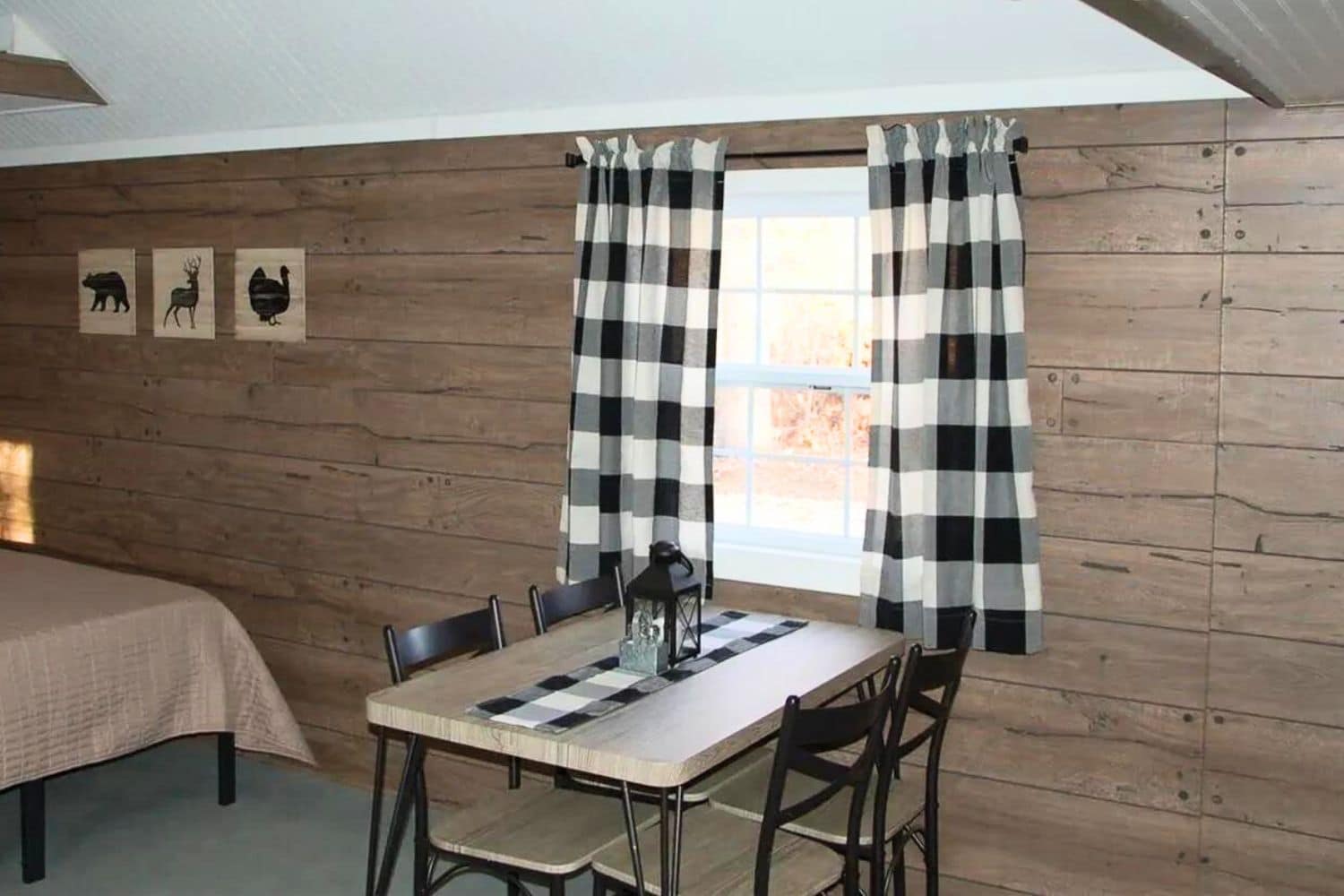

Other than the kitchen and bathroom, the features of your cabin should be changeable. You will want to be able to push your kitchen island or table over to the wall to be out of the way or to serve another purpose. Don’t make any permanently fastened furniture unless it is already off to the side or somewhat collapsible. Shelving solutions should be flexible as well.
Are there design tools to make a floor plan mock-up?
Yes, there is. Some things are better drawn out so that we can better visualize the designs in our heads. Use a floor plan creator to help develop the dreams you are creating.
How Do I Power My Off-Grid Cabin?
Solar
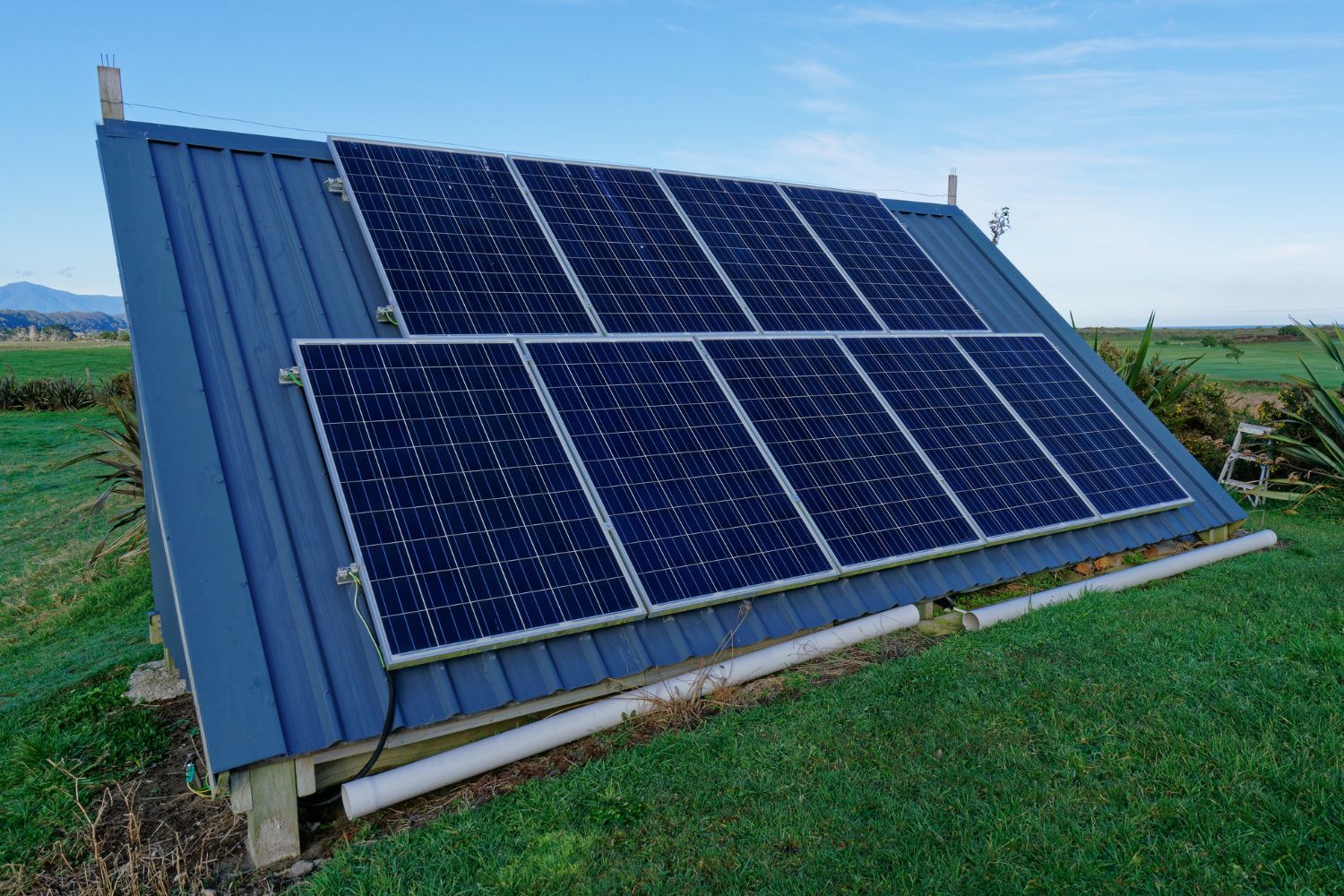

We recommend using a solar power system for your off-grid cabin. This would include solar panels, an inverter, a rack, and batteries. How many panels you need will vary on how many appliances and lights you are planning to use regularly. For light use, you should be fine with 2 or 3 360W panels. For heavier use, you may need to get several more. The chart below might give you an idea of the size solar system you should have.
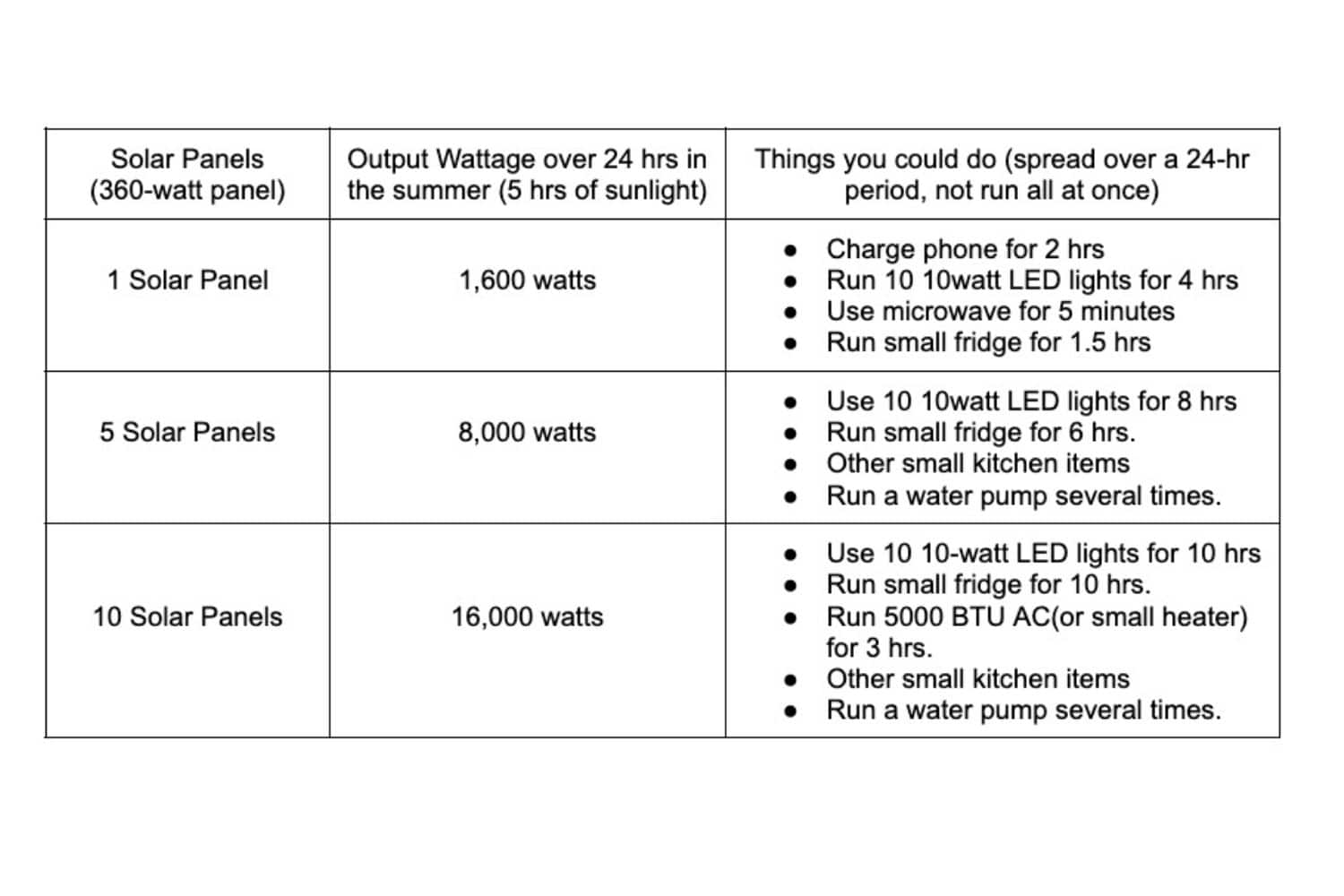

(This is not to be used as a sizing guide but rather as a reference. All these figures are based on theoretical conditions, so they may or may not be accurate depending on your situation. Talk to a professional solar representative for sizing help.)
For the rest of the setup, you will want a battery bank to store the electricity for evening and nighttime use. Also, an inverter will be necessary to convert the electrical current to the proper voltage. Last of all, you may want a rack to hold the batteries in an organized fashion.
Generators
To go along with your solar setup, we have several other recommendations that will help with the amount of power you use at your cabin. The first one is a generator. Having a backup generator is a good idea, just in case you need to run something that draws a lot of current or just to extend your evening when the batteries are low. With a portable generator in your off-grid cabin, you will always have access to electricity when you need it.
Propane
The other power source you should have for your off-grid cabin is propane. Appliances like stoves and heaters take a heavy load of electricity, so we recommend getting propane-fueled heaters, stoves(or cooktops), and dryers. Not only will this allow you to install fewer solar panels, but propane heat is more efficient than electric heat. With a few appliances connected to a 50-100 lb movable propane tank, you can very easily bring efficient heating and cooking capabilities to your cabin.
How Can I Keep My Off-Grid Cabin Energy Efficient?
Insulation


It is very important to make sure your building does not lose heat, especially if you are there outside of the summer months. Two good options to use for insulation are spray foam and fiberglass batts. Some spray foam can actually help the structure of the building, while fiberglass batts are better if you want to customize anything later on. Overall, make sure that your cabin is well insulated and sealed, especially at the ceiling.
Energy-Efficient Appliances
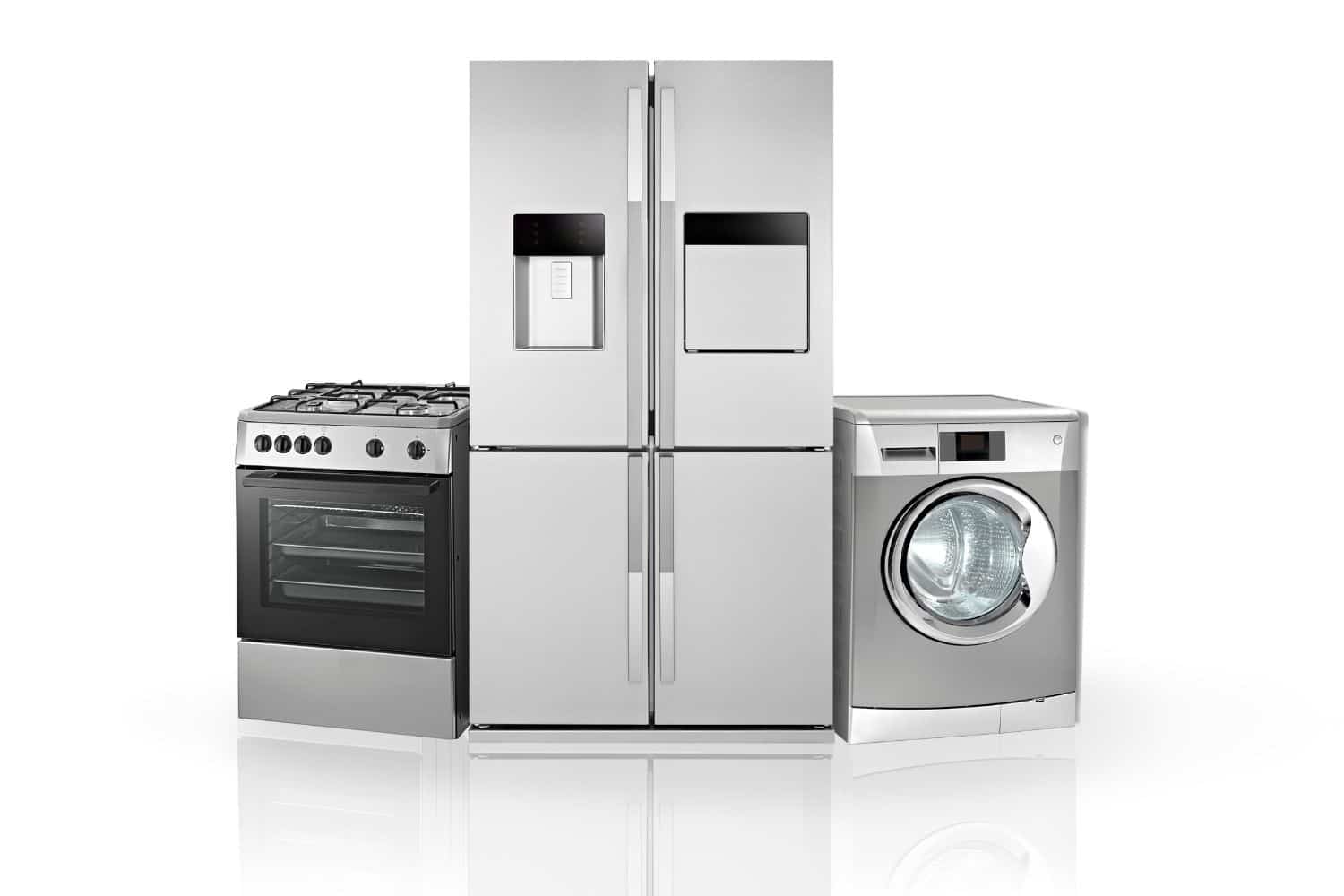

Your cabin may seem to be the perfect place for the old refrigerator; however, that may not be the case. In an off-grid cabin application, energy-efficient appliances are very important to prevent overwhelming your electrical system. Older appliances generally use more electricity than recent models, so going with newer appliances will result in less electricity being used. Using propane-powered cooktops and heaters is a good way to be more energy efficient overall. You may even be interested in propane-powered refrigerators instead of the old one from 1985.
Appropriate Lighting


For lighting your space, we recommend Kimberly’s opinion of using 12-volt LED lights, similar to what you would find in an RV. You can even get them in recessed, dimmable form! Light your space in an efficient and effective way.
Off-Grid Cabin Must-Haves
Now that you have the main things taken care of, it’s time to look at other equally important things that will make or break your off-grid experience. Below is a list of five things that we believe to be important off-grid cabin must-haves.
Water
The average person uses an average of 80-100 gallons of water per day. Even if you use a fraction of that, where will that come from in an off-grid cabin location? The most ideal source of water is obviously a well, either with an electric pump or even a hand pump. Another source is a rainwater collection system mounted to catch water off your roof and store it in a tank. A nearby stream could also work, depending on the quality and distance from your off-grid cabin.
How should I store the water at my off-grid cabin?
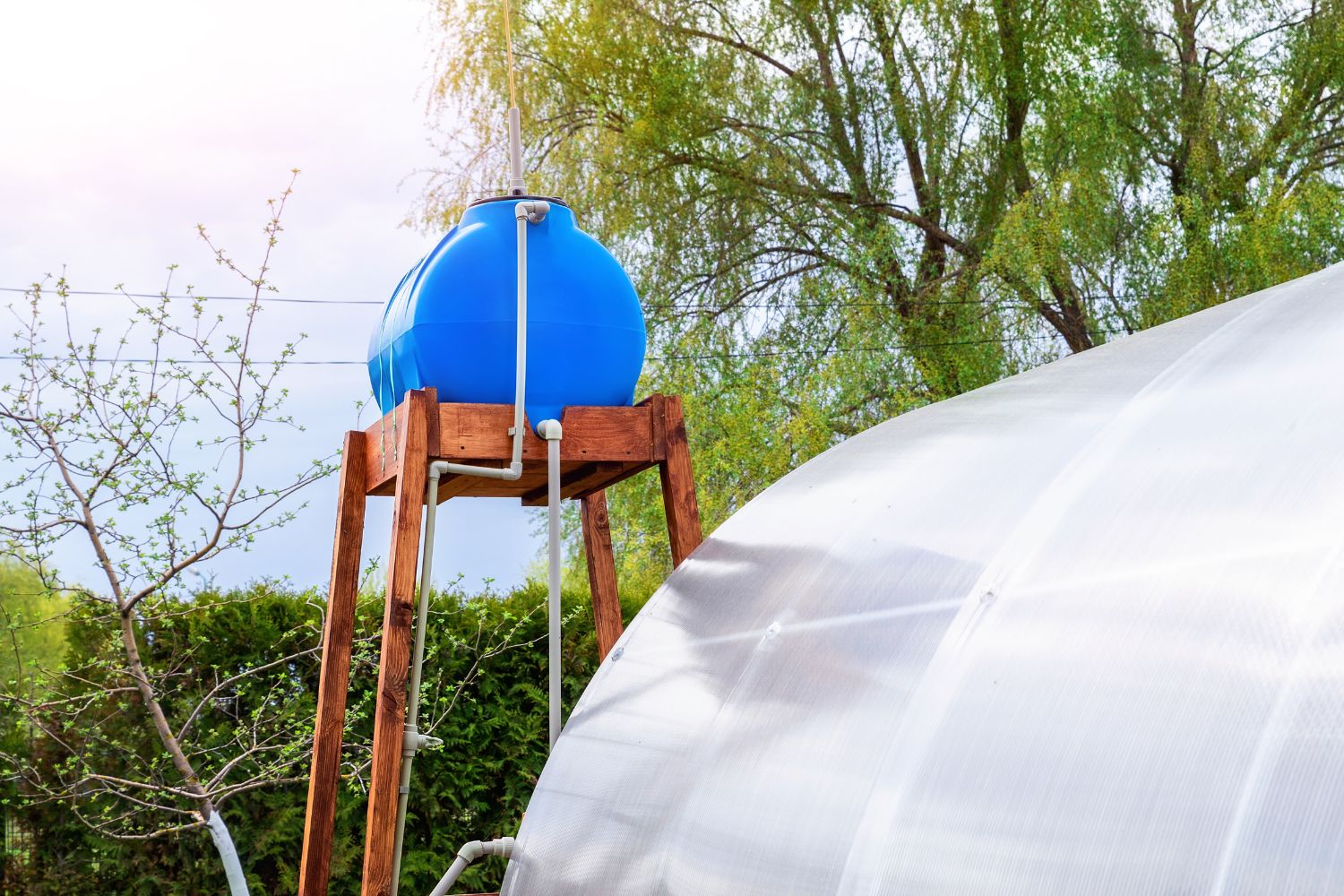

Most likely, you will not be able to have a well pump that constantly pumps water, so you will need a place to store it. Even if you are getting your water from a stream or rainwater, storing it in a small water tower would be a good option outside the winter months. This would allow gravity to give you water pressure, even without electricity. You could run your pump to fill it back up whenever you need. Because rainwater and creek water tend to be unsafe to drink, you must keep a stash of purified water on hand for drinking.
Waste Management
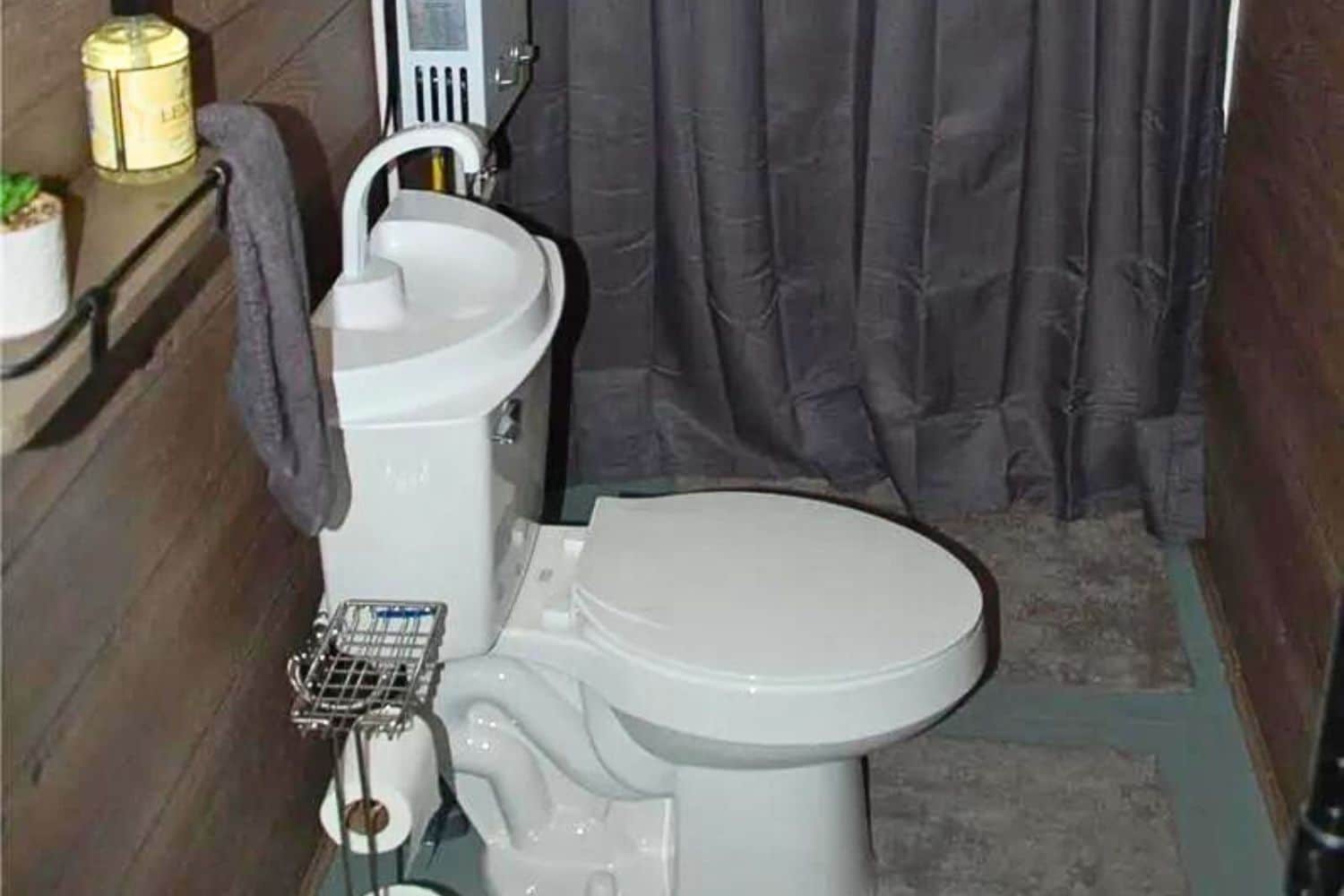

First of all, it is essential to check your local requirements regarding waste management. Not all waste management systems may fit the codes for your area. When we asked Kimberly about her setup, her number one option was installing a septic system for her off-grid cabin. This is the most convenient method. Some DIY septic systems are available, or a contractor could install one for you. However, other options are available. If putting a septic system in is not an option for you, consider using a composting toilet, which can be kept inside your cabin or in an outbuilding close by. It will need to be emptied from time to time, but it is designed for easy disposal.
Foundation
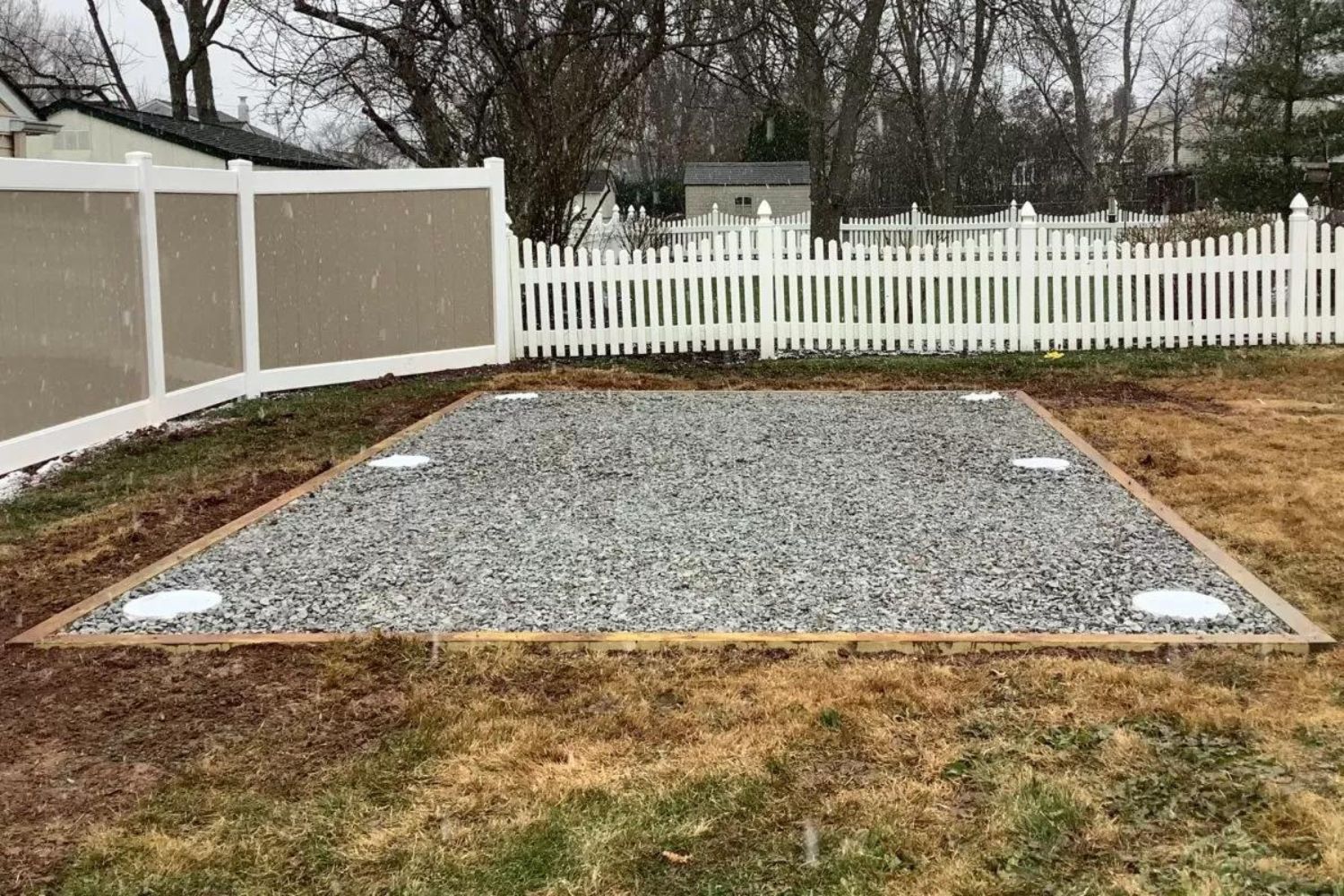

Do you need a foundation? In order for your off-grid cabin to remain stable and level for years, a foundation is necessary. We recommend a concrete pad for the best results; however, a pier-base foundation is also a good option. For a more in-depth analysis, read more on shed foundations.
Emergency Medical Supplies


What happens if I cut my finger? We highly recommend having an emergency medical kit stashed away, even for what seem to be minor issues. From bandages and antiseptics to splints and medication, these supplies can literally be a lifesaver in the event of injury or illness. Make sure you take care of yourself by having a comprehensive first aid kit in your off-grid cabin.
Tools
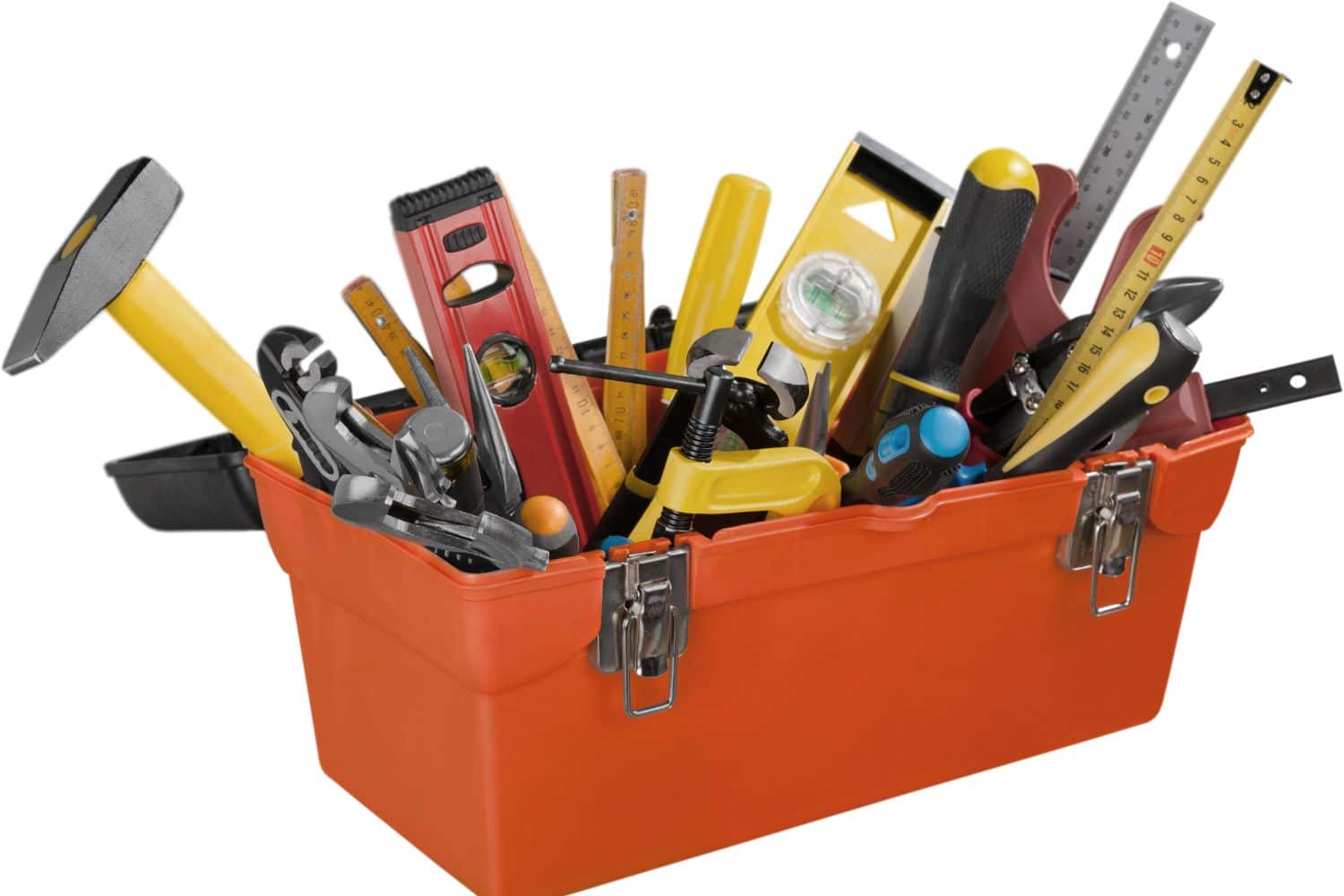

Having the right tools makes DIY activities achievable. Here is a list of tools we recommend you keep at your off-grid cabin.
- Axe
- Hand tools (hammer, screwdriver, etc.)
- Fasteners (rope, zip ties, duct tape, etc.)
- Battery tool kit
- Utility knife
- Shovel
These are just a few of the things that you may deem necessary for your cabin. For a more in-depth list, read this blog from Ozark Premier Buildings titled ”51 Things You Need For Your Off-Grid Cabin.”
What Are The Disadvantages Of Off-Grid Cabins?
While there are many advantages to living off-grid, there is a downside as well. While you are living a happier and healthier life, these are some disadvantages you will face.
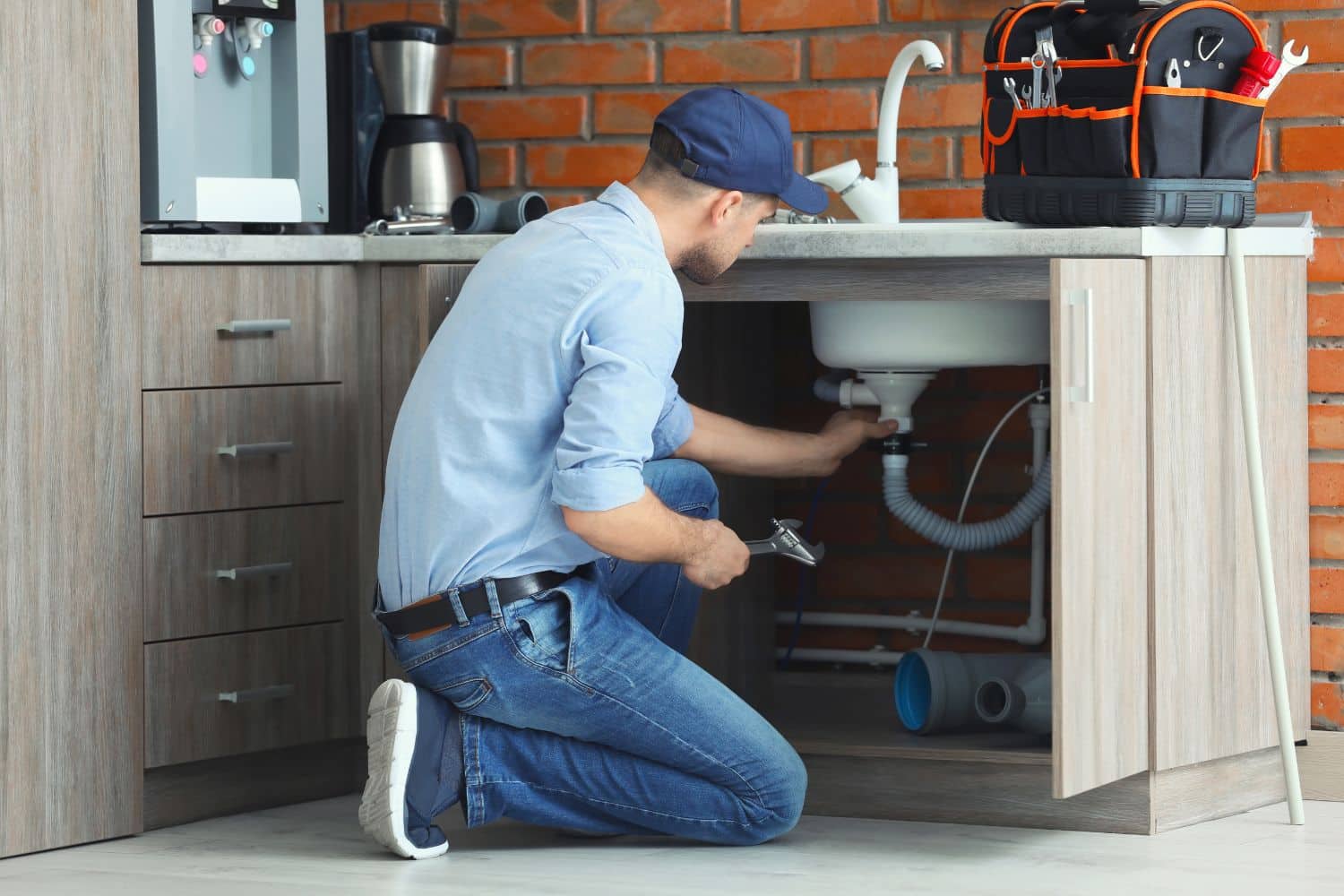

Less Convenience
Living off-grid often means living further away from stores and other people. Anything that you need requires more effort to acquire. Additionally, daily comforts that you are accustomed to may not be available, including high-speed internet, consistent hot water, or a controlled indoor climate.
More Maintenance
Each of your off-grid cabin systems that are set up requires more maintenance than your typical house. Things like getting water and emptying the waste require more time to maintain functionality. If anything breaks, your systems are often more complicated to fix.
Less Predictability
Let’s face it, you may have times when the sun isn’t out, and the generator is out of gas. The systems you have set up are not as consistent as when you are on the grid. There may be times when you run out of water, depending on how you collect it. Because you are independent, understand that you might have cold showers and dark evenings sometimes.
Expensive Systems
The systems that you put in are generally more expensive than ones installed in traditional buildings. The things that make you off-grid have more up-front costs than on-grid. That is balanced with the fact that your off-grid cabin has fewer upkeep costs, so over time, those upfront costs will pay off.
So, What Grid Cabin Sounds Right For You?
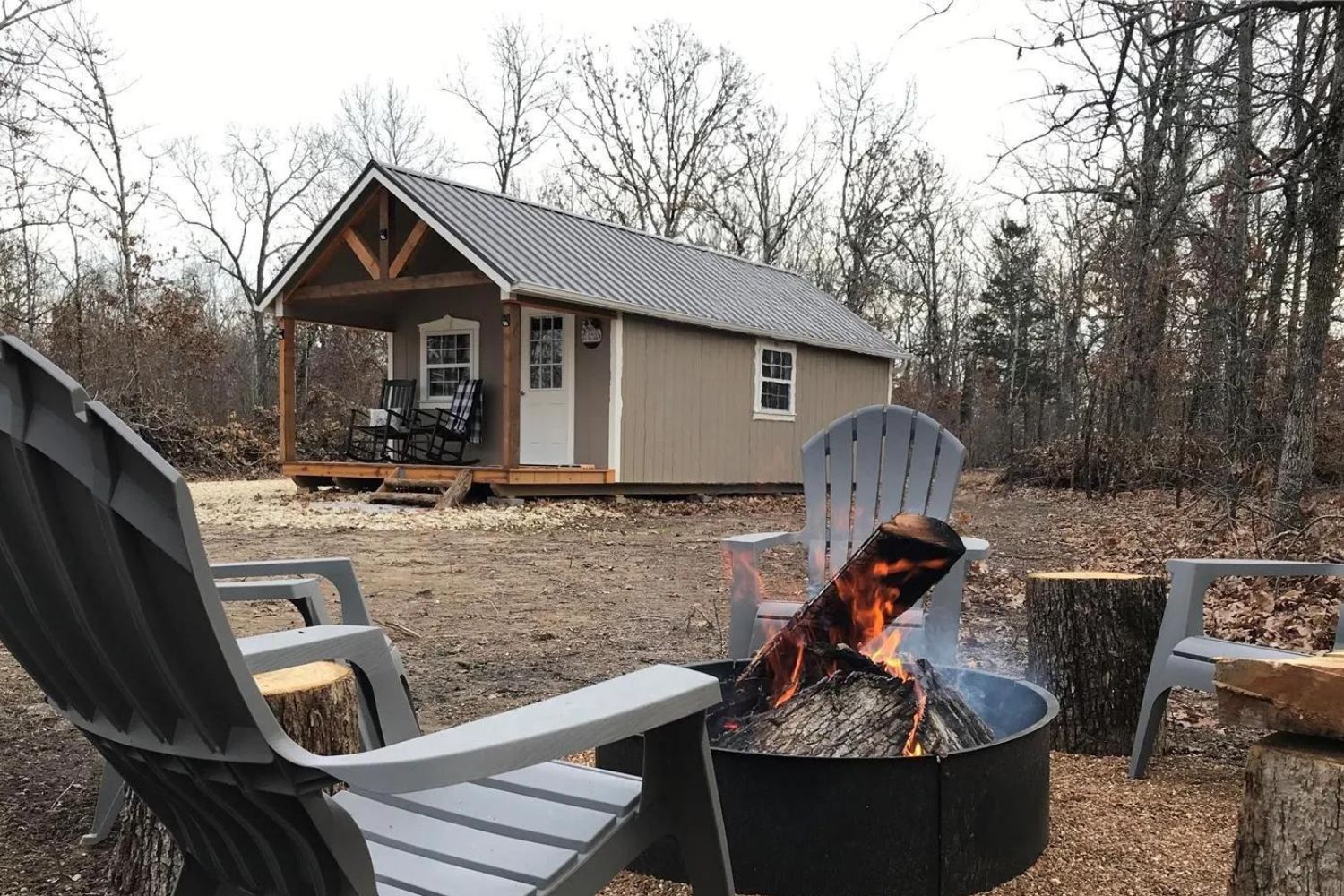

The idea of being off the grid is exciting, tantalizing, maybe. For most of us, life is so busy that we rarely have time to enjoy the beauty we see around us. There are always “things to do, people to meet, places to go,” as the saying goes. When we hear about being able to relax, hear our own thoughts, and enjoy life, we almost think that sounds like an unrealistic dream. However, at 5 Star Buildings, we pride ourselves on living up to our slogan, “You Dream It, We Build It.”
If you want to check out more of the pictures from Kimberly, check out the property listing. (The property is no longer for sale at this time, but we hope this can give you an idea of how you can enjoy your off-grid cabin space.)


